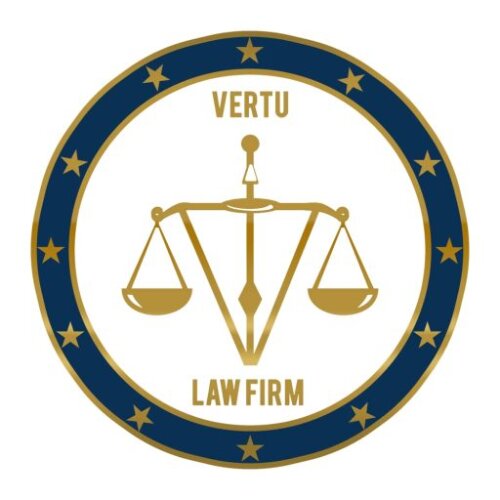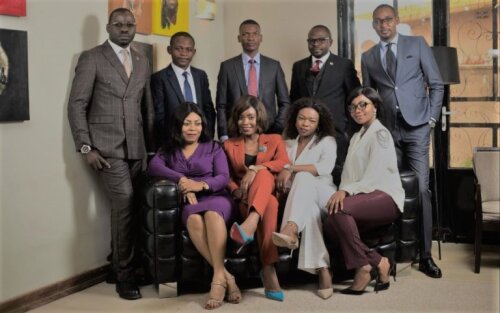Best Sanctions & Export Controls Lawyers in Lubumbashi
Share your needs with us, get contacted by law firms.
Free. Takes 2 min.
List of the best lawyers in Lubumbashi, DR Congo
About Sanctions & Export Controls Law in Lubumbashi, DR Congo
Sanctions and export controls law in Lubumbashi, Democratic Republic of Congo, is a specialized area that governs the transfer, export, and movement of goods, services, technology, and finances across borders. It also covers compliance with domestic and international sanctions, especially regarding mining products, equipment, and technology which are major economic drivers in Lubumbashi and the wider Katanga region. Sanctions can be imposed by the Congolese government, regional organizations like the African Union, or international bodies such as the United Nations and the European Union. These laws are in place to ensure national security, prevent illegal trade, and uphold international obligations, with strong enforcement mechanisms and penalties for non-compliance.
Why You May Need a Lawyer
Sanctions and export controls can be complex and constantly evolving, especially when multiple jurisdictions or international regulations are involved. People and businesses in Lubumbashi may require legal assistance for several reasons:
- Understanding whether their business activities, trade, or partnerships are subject to export controls or sanctions
- Navigating the process of obtaining required licenses and permits for export or import of goods, especially minerals or technology
- Ensuring compliance with international sanctions which can affect suppliers, customers, or financial transactions
- Responding to investigations or enforcement actions initiated by local or foreign authorities
- Mitigating the risk of penalties, fines, and loss of goods due to non-compliance
- Developing internal compliance programs and training employees on proper procedures
- Providing representation in court or during administrative proceedings related to export control violations
- Advising on due diligence for mergers, acquisitions, or new business ventures involving cross-border activity
- Guidance on navigating the United Nations or United States imposed sanctions, which often impact Congolese businesses
Local Laws Overview
In the Democratic Republic of Congo, sanctions and export controls are primarily regulated through several national laws, decrees, and ministerial orders. The central government, mainly through the Ministry of Mines, Ministry of Trade, and Ministry of Finance, sets regulations for the export of minerals, technology, and other sensitive items. The Central Bank of Congo also plays a role in monitoring and regulating cross-border financial transactions.
Key local considerations include:
- Export license requirements for minerals and certain commodities
- Prohibition on trade with individuals or entities designated in international or local sanction lists
- Customs controls at borders, including Lubumbashi airport and nearby road/train crossings
- Special attention to dual-use goods, which have both civilian and military applications
- International compliance obligations, such as with United Nations Security Council Resolutions
- Reporting obligations for suspicious financial transactions related to exports or imports
- Regulation of technology transfer and technical assistance to ensure sensitive information does not aid sanctioned parties
Violation of these laws can result in the seizure of goods, heavy financial penalties, loss of trade privileges, and even criminal charges depending on the seriousness of the breach.
Frequently Asked Questions
What are export controls and how do they apply in Lubumbashi?
Export controls are laws that regulate the export of certain goods, technology, and services to other countries or regions. In Lubumbashi, these controls are significant for the mining industry, machinery, and technology. Businesses must obtain appropriate licenses before exporting controlled items.
Who imposes sanctions that affect Lubumbashi-based businesses?
Sanctions affecting Lubumbashi can be imposed by the Congolese government, but more commonly by international bodies such as the United Nations Security Council, the European Union, or the United States, often targeting certain individuals, companies, or sectors.
How can I find out if my business partner is on a sanctions list?
You can consult official government or international listings of sanctioned individuals and entities. A lawyer can also conduct due diligence to ensure your business partners are not listed.
What are the penalties for violating export controls in the DR Congo?
Penalties may include fines, suspension of licenses, seizure of goods, or criminal prosecution. The severity depends on the nature and frequency of the violations.
Do sanctions always ban all business with targeted persons or countries?
Not always. Some sanctions are "targeted" or "smart" and may only restrict certain types of transactions or specific goods and services. Legal advice is recommended to clarify what is allowed.
Can I apply for an exemption or license to export a controlled product?
Yes, in many cases exemptions or licenses can be requested from relevant Congolese authorities, although approval is not guaranteed and depends on the specifics of the situation.
How often do sanctions and export control laws change?
They can change frequently, especially when new international developments occur or new security concerns arise. Staying updated and consulting legal experts is advised.
Is it necessary to have a compliance program for a small business?
While not always legally required, having a compliance program greatly reduces risk, ensures awareness among staff, and provides legal protection if issues arise in the future.
Are there specific rules for exporting minerals from Lubumbashi?
Yes, the DRC has strict licensing, reporting, and export validation requirements for minerals. These are enforced to prevent illegal mining and trafficking.
Who should I contact first if I receive a government inquiry about sanctions or export controls?
You should contact a qualified lawyer with experience in sanctions and export controls before responding, to ensure your rights are protected and to develop an appropriate response.
Additional Resources
Here are some helpful resources if you need more information or assistance related to sanctions and export controls in Lubumbashi:
- Ministry of Mines - Responsible for mineral resource export licenses and controls
- Ministry of Trade - Oversees general export-import regulations and licensing
- Central Bank of Congo - Supervises financial transactions and currency controls
- Customs Office (Direction Générale des Douanes et Accises) - Administers borders and customs procedures
- Chamber of Commerce and Industry of Katanga - Offers advice to businesses on compliance
- United Nations Mission in DRC - Provides updates on UN sanctions and international obligations
- Qualified law firms experienced in export control and international trade law
Next Steps
If you think you need legal assistance with sanctions and export controls in Lubumbashi, consider the following steps:
- Identify your specific legal question or problem, whether it's licensing, compliance, or a government inquiry
- Gather all relevant documentation, such as contracts, correspondence, licenses, and business records
- Contact a lawyer or legal advisor with experience in sanctions and export controls in Lubumbashi or the broader Katanga region
- Schedule a consultation to discuss your case and potential compliance needs
- Follow legal advice to address any risks or current issues, and consider implementing long term compliance measures
- Stay informed about changes in the law by regularly checking official resources and consulting your lawyer as needed
Early legal intervention can help you avoid costly penalties, maintain your business reputation, and navigate complex legal requirements with confidence.
Lawzana helps you find the best lawyers and law firms in Lubumbashi through a curated and pre-screened list of qualified legal professionals. Our platform offers rankings and detailed profiles of attorneys and law firms, allowing you to compare based on practice areas, including Sanctions & Export Controls, experience, and client feedback.
Each profile includes a description of the firm's areas of practice, client reviews, team members and partners, year of establishment, spoken languages, office locations, contact information, social media presence, and any published articles or resources. Most firms on our platform speak English and are experienced in both local and international legal matters.
Get a quote from top-rated law firms in Lubumbashi, DR Congo — quickly, securely, and without unnecessary hassle.
Disclaimer:
The information provided on this page is for general informational purposes only and does not constitute legal advice. While we strive to ensure the accuracy and relevance of the content, legal information may change over time, and interpretations of the law can vary. You should always consult with a qualified legal professional for advice specific to your situation.
We disclaim all liability for actions taken or not taken based on the content of this page. If you believe any information is incorrect or outdated, please contact us, and we will review and update it where appropriate.











